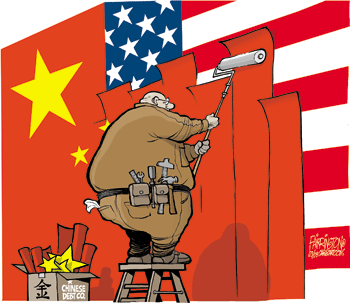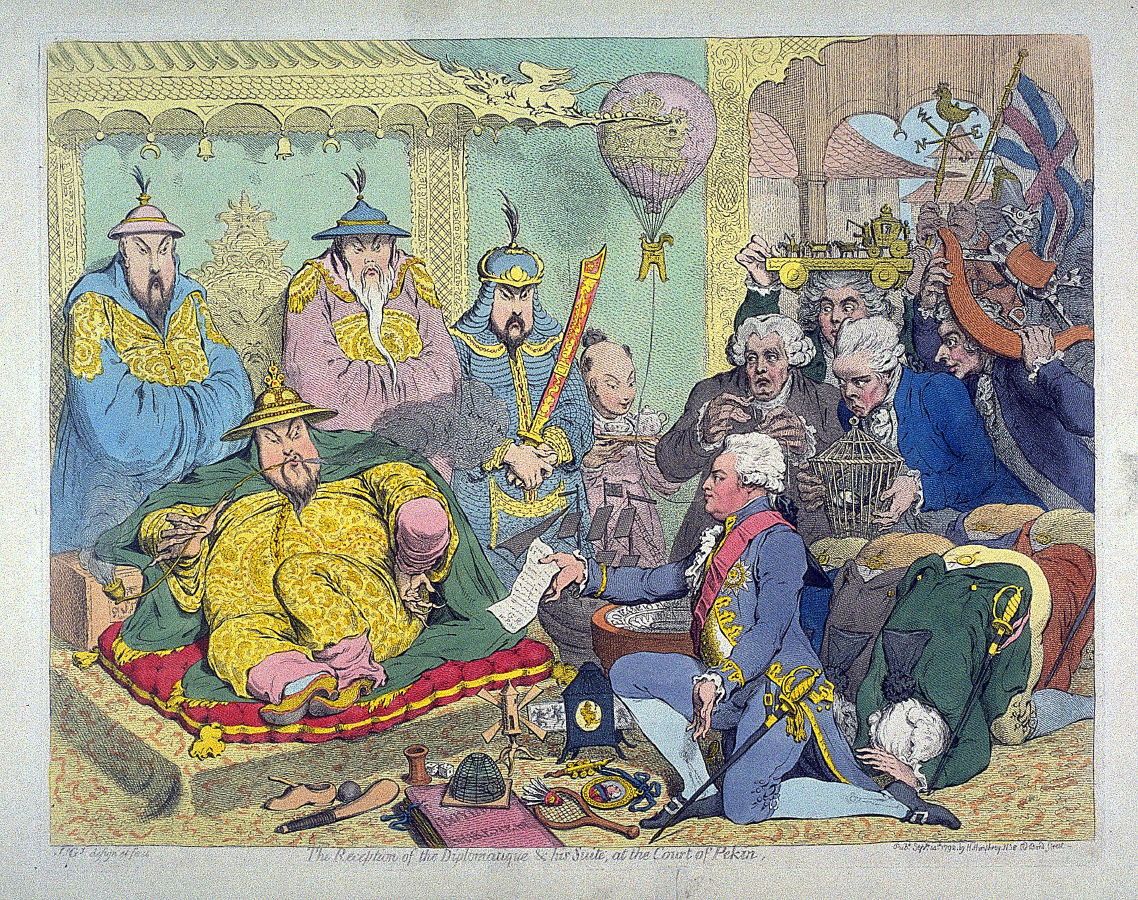
Xi floats 'G2' sharing the world with U.S. again
President says Planet Earth is big enough for both U.S. and China.
One of the key phrases Chinese President Xi Jinping used when meeting U.S. Secretary of State Antony Blinken in Beijing was this: "Planet Earth is big enough to accommodate the respective development and common prosperity of China and the United States."
For people who have observed U.S.-China relations for a while, it rings a bell. Xi made a similar remark 10 years ago during his first visit to the U.S. as China's top leader.
In June 2013, Xi met with then-U.S. President Barack Obama at the Sunnylands Retreat in California and proposed "a new type of great power relationship" between the countries.
 Explaining the concept, Xi told Obama: "The vast Pacific Ocean has enough space for the two large countries."
Explaining the concept, Xi told Obama: "The vast Pacific Ocean has enough space for the two large countries."
Xi's ideal was for the U.S. to accept China's rising economic and military power, work with China to resolve global issues and even split the profits.
It was tantamount to proposing a Group of Two or "G2" -- a concept that was being widely discussed at the time.
After contemplating for a while what Xi's proposal implied, the Obama administration said no. Dividing the ocean, the Americans understood, was equivalent to changing the status quo and an attempt to challenge the U.S.
Current U.S. President Joe Biden, then vice president to Obama, had a front-row view of the developments.
In
retrospect, Obama's rejection of the G2 proposal was the beginning of
strained U.S.-China relations, which continue to be strained to this
day. At the time, China was already flexing its muscle, making
unprecedentedly aggressive moves in the South China and East China seas.
The U.S. could not accept this as the new normal.
Xi's remark to Blinken is a rehash of this once-used -- but extremely significant -- comment. This time, the term "vast Pacific Ocean" was replaced with "Planet Earth," signaling that the stage is quite a bit grander than a decade ago.
Good or bad aside, Xi's basic way of thinking has not changed. This is unsurprising considering that the core lineup of his foreign and security advisers is made up of the same people.
One difference between the first proposal and the most recent one is that this time Xi noted that China and the U.S. can develop and have "common prosperity."
This sounds like Xi's answer to decoupling. He sees a world in which China and the U.S. can divide their respective interests and coexist.
To emphasize the benign nature of China's rise, Xi told Blinken that China respects U.S. interests and "does not seek to challenge or displace" the U.S.
"In the same vein," Xi added, "the United States needs to respect China and must not hurt China's legitimate rights and interests."
But if the only concern for the great powers was not to infringe on each other's interests, this is equivalent of divvying up the world -- the very concept Obama rejected.
While bringing down the temperature in the U.S.-China caldron of a rivalry is important to avoid an accidental clash, if Xi's ultimate goal is a G2, then it would be difficult to fundamentally improve U.S.-China ties.
Chinese media outlets covered Blinken's visit to Beijing in tremendous detail. The coverage was reminiscent to a trip by a U.S. president. From his arrival in Beijing on Sunday, Chinese government-affiliated social media began to report on Blinken's every move
After a lengthy meeting with Qin Gang, Chinese state councilor and foreign minister, Blinken came out of the gate of the Diaoyutai State Guesthouse in Beijing late at night. Even footage showing the movement of Blinken's car moving away was promptly broadcast.
This attention seemed odd, considering the combative talking points -- known as "wolf warrior" diplomacy -- regularly lobbed at the U.S.
 But
China was looking for a diplomatic victory. The impression Beijing
wanted the public to come away with, was America's top diplomat finally
visiting Beijing, bending his knee and bowing before being allowed to
have an audience with Xi.
But
China was looking for a diplomatic victory. The impression Beijing
wanted the public to come away with, was America's top diplomat finally
visiting Beijing, bending his knee and bowing before being allowed to
have an audience with Xi.
During their meeting, Xi sat at the head of a long conference table, with Blinken and other participants looking up at him as if a company president were hearing a report from subordinates.
One expert familiar with China's economy and diplomacy, however, noted that it was a separate meeting Xi had that showed China's true state of affairs.
Xi on Friday met with Bill Gates, telling the Microsoft co-founder, "You're the first American friend I've met in Beijing this year."
The meeting took place at the Diaoyutai State Guesthouse, where China entertains state guest-level visitors.
Furthermore, the mandarins who sat with Xi for the Gates visit were Foreign Minister Qin Gang and top diplomat Wang Yi.
It was not the first time Xi had sat down with Gates. They met during an annual conference of the Boao Forum for Asia in China's Hainan province in April 2013, immediately after Xi became Chinese president.
During his 2015 trip to the U.S., Xi even visited Gates' private residence. Former Chinese President Hu Jintao also visited the luxurious house during his 2006 trip to the U.S.
But since 2015 it had been then Chinese Premier Li Keqiang, not Xi, who would meet with Gates every time the U.S. business tycoon visited Beijing.
The Xi-Gates meeting last week was related to China's ailing economy.
The unemployment rate among young people in China has become an issue. Official figures show it hovering at more than 20%. The situation is more serious now than it was before December, when China backed off its strict zero-COVID policy, which had been slamming the economy.
If the economic environment surrounding China deteriorates further due to the worsening of relations with the U.S., China's security in the broad sense of the term, which includes "national security" and "regime security," could be affected.
The communist regime attaches importance to national and regime security.
Despite being in charge of diplomacy, Qin Gang also recently met with another guest from the U.S. business world -- Tesla CEO Elon Musk, on May 30. Such a meeting, which not long ago would have been completely outside Qin's duties.
But the recent meetings show that Gates and Musk are important elements of China's security.
Meanwhile, Premier Li Qiang on Sunday left for a trip to Germany and France to maintain China's relations with the two main members of the European Union.
During Li's absence, Xi personally filled in to oversee China's most important relationship, those with the U.S.
To Blinken, Xi conveyed his views on the world and the U.S. These views have not changed significantly in the past decade.This is why his 2013 proposal of dividing the Pacific in two made a come back.
China has begun to explore the possibility of realizing a face-to-face meeting between Xi and Biden with an eye on two major international conferences to be held later this year. The leaders held their first face-to-face meeting in Bali, Indonesia, last November.
One of the two approaching conferences is the G20 summit in New Delhi, India, in September. The other is a summit of the Asia-Pacific Economic Cooperation forum in California, the U.S., in November.
But before Xi and Biden can discuss divvying it up, "Planet Earth," being the political battleground it always has been, will throw plenty of twists and turns their way.








No comments:
Post a Comment
Note: Only a member of this blog may post a comment.